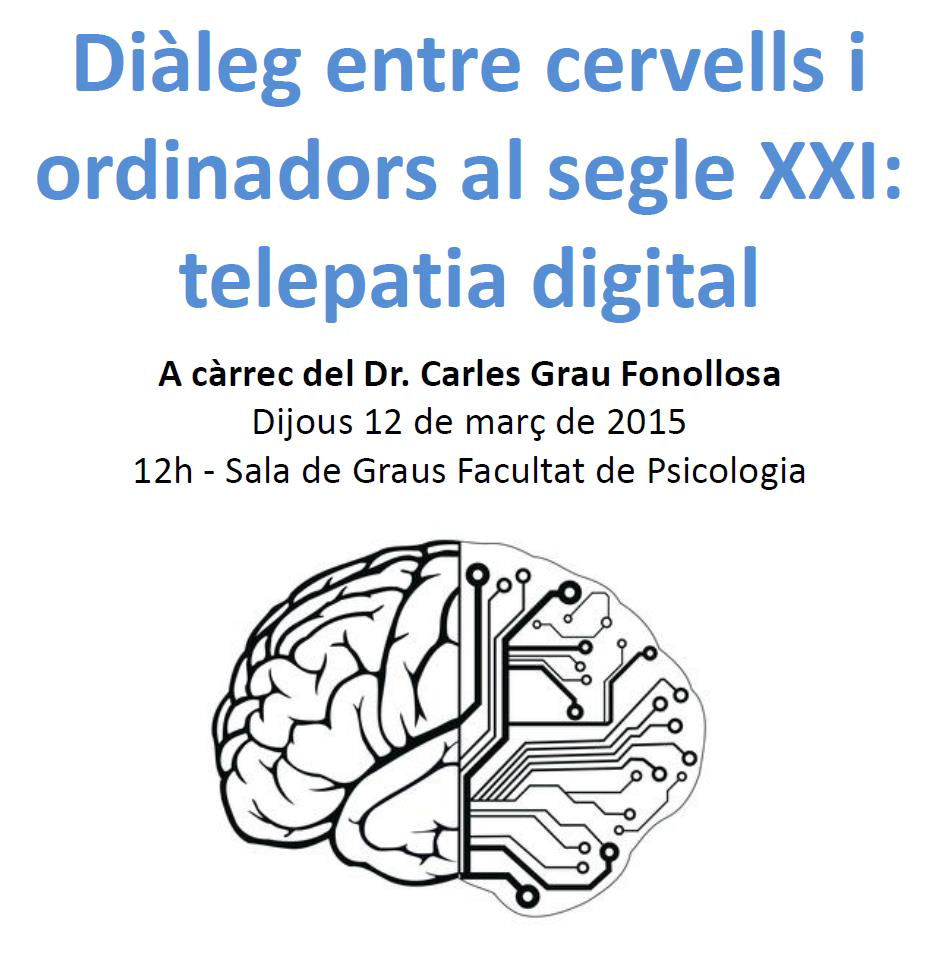Human brain vs. computer

What similarities and differences are there between a computer and a human brain? Will computers beat human brainʼs processing ability? These are some of the questions posed by Dr Carles Grau Fonollosa, director of the Neurodynamics Laboratory of the University of Barcelona on the lecture “Diàleg entre cervells i ordinadors al segle XXI: telepatia digital”. The activity takes place on Thursday 12 March, at midday, in the Sala de Graus at the Faculty of Psychology.

What similarities and differences are there between a computer and a human brain? Will computers beat human brainʼs processing ability? These are some of the questions posed by Dr Carles Grau Fonollosa, director of the Neurodynamics Laboratory of the University of Barcelona on the lecture “Diàleg entre cervells i ordinadors al segle XXI: telepatia digital”. The activity takes place on Thursday 12 March, at midday, in the Sala de Graus at the Faculty of Psychology.
Computer processing power has grown exponentially since 1965; it has been doubled every eighteen months. This is Mooreʼs Law. Are there any limits to this growth? Where are they? Will computers be able to simulate abilities which have remained exclusive of the human brain, like consciousness?
Dr Grauʼs lecture emphasizes that, in a near future, the widespread use of brain-computer connection technologies will open new insights into human relations, with important consequences on our society that will require new legal and ethical regulations.
